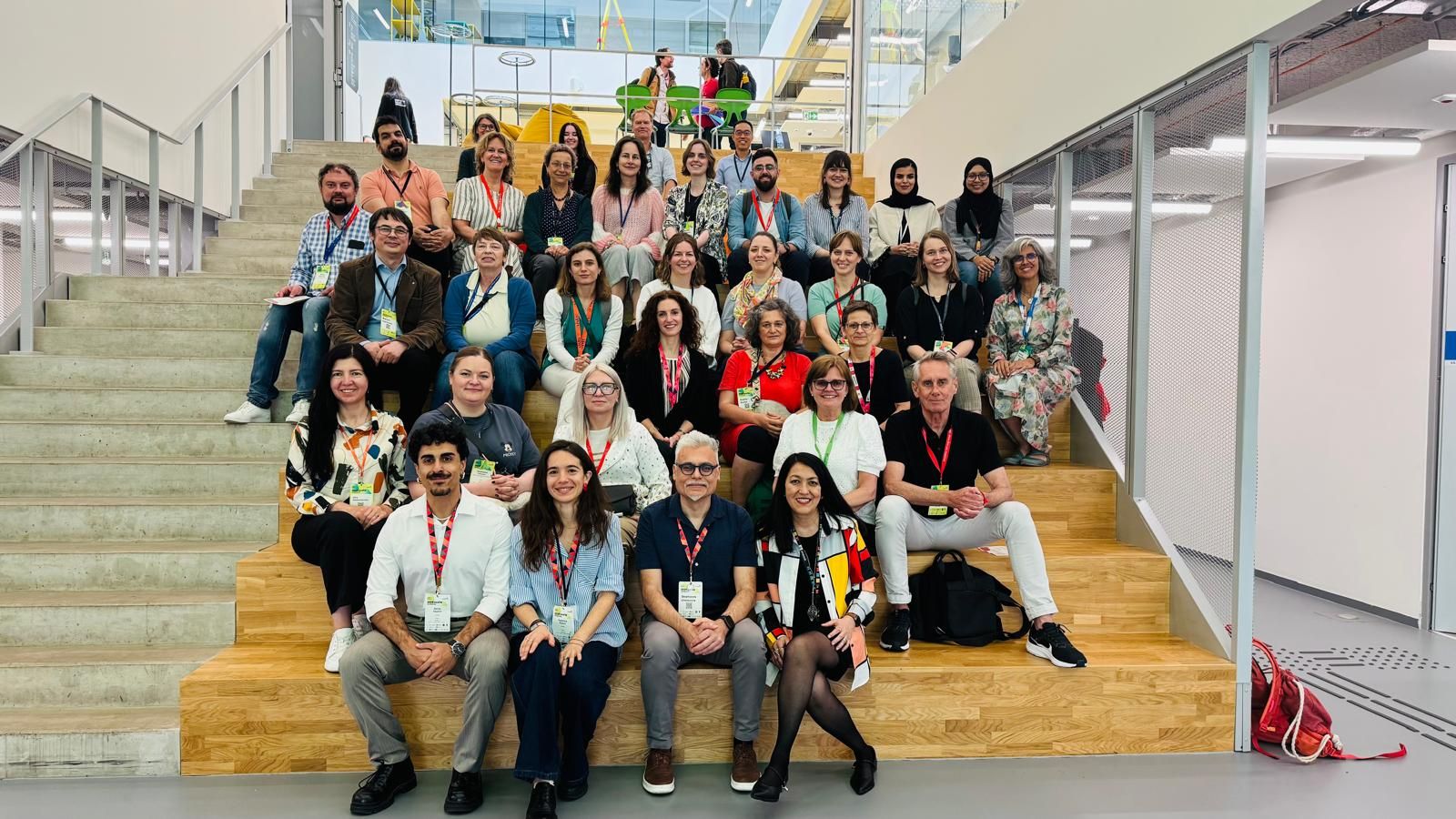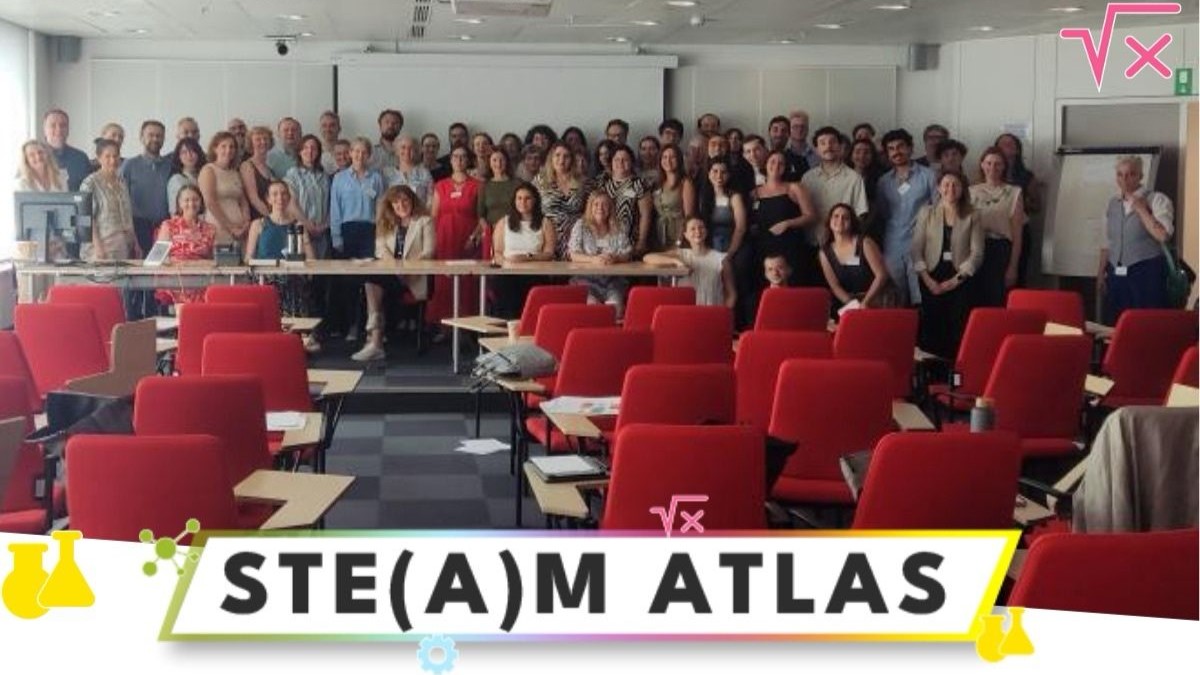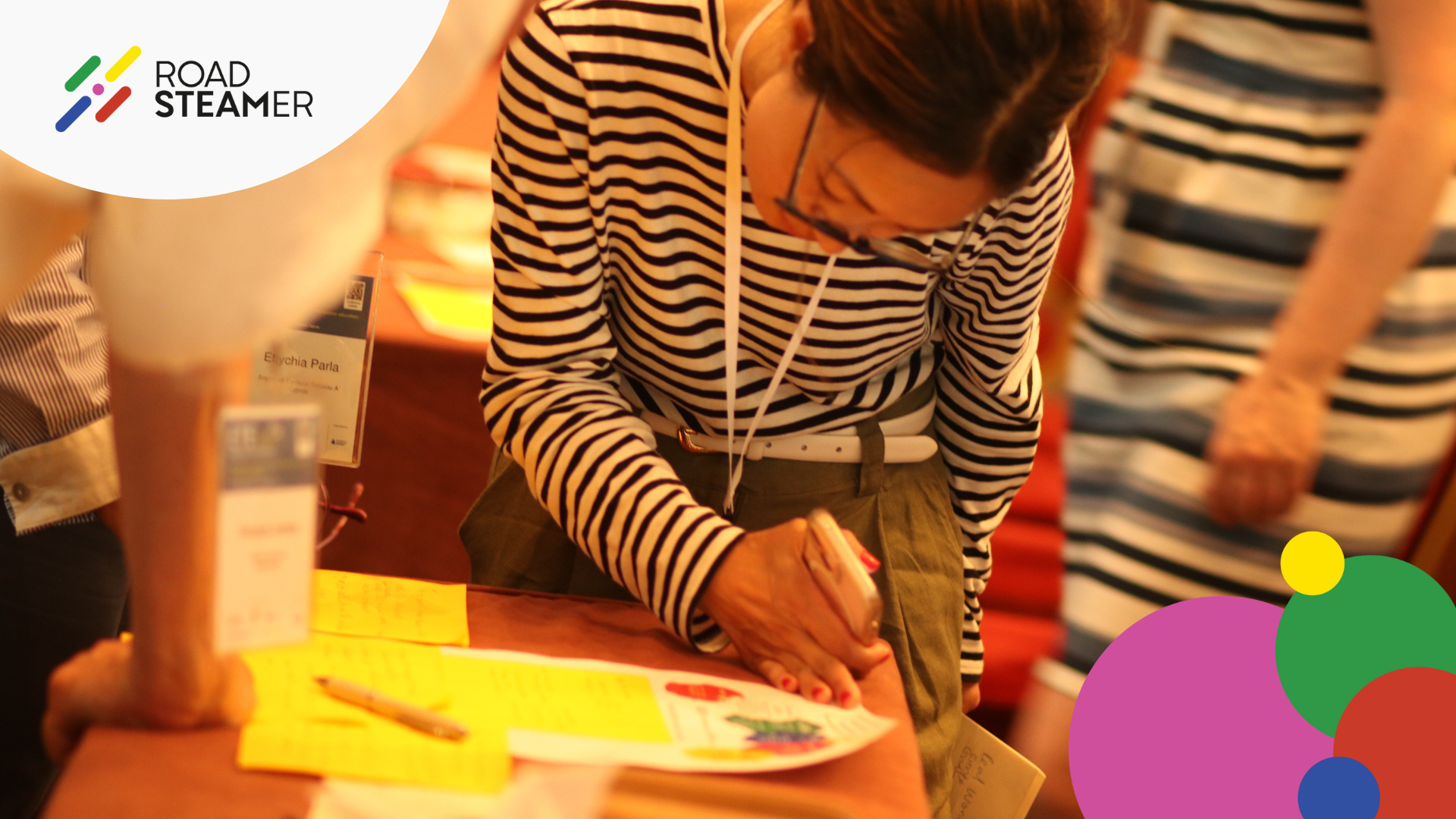The “Open Schooling in Action: Building Lasting Partnerships for Educational Innovation” Deep Dive at Ecsite Conference 2025 brought together a diverse group of educators, researchers, museum professionals, and community actors for a dynamic, four-hour session on the future of Open Schooling in Europe.
The Open Schooling together community
The session was co-hosted by seven EU-funded projects, that form part of the Open Schooling together (OSt) community:
STE(A)M Learning Ecologies,
Road-STEAMer,
METEOR,
CONNECT,
ICSE Science Factory,
Nature Around the Corner, and
Make it Open. United by a shared mission, these initiatives aim to unlock the full potential of open STEAM education to address societal challenges through innovative, collaborative approaches that strengthen the ties between schools and society.
Discovering Open Schooling in practice
Throughout the session, participants engaged in two networking activities designed to foster dialogue and connection. A standout activity of the session was a role-based scenario exercise, which encouraged attendees to adopt various perspectives (such as school leaders, museum staff, parents, and local authorities) to collaboratively design Open Schooling initiatives rooted in real-world challenges. Conversations quickly shifted from abstract ideas to practical strategies to find solutions and overcome challenges.
A “gallery walk” featuring the seven hosting projects provided valuable opportunities to explore the practical dimensions of Open Schooling. Rather than simply presenting the outcomes of the projects, each station offered interactive experiences: tools to try, questions to consider, stories to hear.
The contribution of Ukraine
A particularly meaningful moment of the event was the contribution from the Junior Academy of Sciences of Ukraine, invited by the Road-STEAMer project to share insights into the challenges of delivering STEAM education during wartime. Their presentation offered a stark and moving account of what it means to pursue science and learning under the constraints of conflict—sometimes quite literally from within bunkers. They discussed the profound impact of war on education and highlighted the role that STEAM approaches can play in fostering resilience, continuity, and long-term recovery in communities affected by war.
Key takeaways
Participants responded with strong interest in Open Schooling as a meaningful model for education, one that is interdisciplinary, inclusive, and socially relevant. Many expressed appreciation for how these projects make room for creativity, local partnerships, and community-based learning. There was a shared belief that this is not a marginal trend, but an important and growing direction for education in Europe. This is further reinforced by current EU policy priorities, which offer hope that the movement will continue to expand. The
EU STEM Education Strategic Plan, a key element of the broader
Union of Skills strategy, underlines the critical role of STEM education in driving Europe’s competitiveness, innovation, and strategic autonomy. The plan strongly advocates for innovative and flexible teaching approaches that extend beyond traditional classroom settings, connecting theoretical knowledge with real-world applications.
Still, one reflection stood out during the day: “
Time is the key, especially for teachers. For these projects to succeed long-term, schools need time and structural space—not as an extra-curricular burden but embedded within the curriculum.” This insight highlights a recurring theme in the Open Schooling conversation: while the potential for transformative learning is clear, lasting impact depends on systemic support—especially in ensuring that educators have the time, resources, and curricular flexibility to make Open Schooling an integral part of everyday practice.
Join the Open Schooling together (OSt) community
This Deep Dive was a moment to share, reflect, connect, and look forward together. It marked an important step for the Open Schooling together community, and a signal that this movement is gaining clarity, depth, and momentum.
If you are interested in receiving news about Open Schooling initiatives, best practices, research outcomes, and upcoming events, subscribe to the
Open Schooling together (OSt) Newsletter!
ABOUT STEAM LEARNING ECOLOGIES
STE(A)M Learning Ecologies develops open schooling-enabled science learning paths across formal and informal education. By introducing the concept of “learning ecologies”, it fosters interconnected knowledge ecosystems and explores open schooling’s potential in shaping European and national policies.
ABOUT ROAD-STEAMER
Road-STEAMer is developing a STEAM Roadmap to guide science education and policy across Europe, addressing the continent’s specific educational needs. It explores how integrated STEAM approaches can enhance learning, foster synergies, and identify policy gaps hindering their effective adoption.
ABOUT METEOR
METEOR enhanced doctoral education by equipping PhD students and early-career researchers with vital transversal skills through innovative training, interdisciplinary collaboration, and summer schools.
ABOUT CONNECT
CONNECT supported secondary schools in adopting open schooling by integrating science-action into the core curriculum through collaboration with families, universities, and enterprises. It offers engaging, curriculum-aligned resources that are easy for teachers to use and enhance community participation in science education.
ABOUT ICSE SCIENCE FACTORY
ICSE Science Factory unites teachers, students, researchers, and community partners from Germany, Croatia, Cyprus, Portugal, and Turkey to co-create hands-on activities, workshops, and open schooling projects focused on sustainability, health, and digitalisation. By engaging in real-world problem solving, the initiative aims to enhance scientific literacy and inspire young people to pursue STEM careers.
ABOUT NATURE AROUND THE CORNER
Nature Around the Corner, connects schools, families, and local communities with nature and science through accessible, hands-on activities. Focused on neighbourhoods near the Naturalis Biodiversity Centre, it especially engages families from lower socio-economic backgrounds in schools, clubs, and community spaces.
ABOUT MAKE IT OPEN
Make it Open has developed tools to help schools and teachers integrate the open schooling approach into their curricula. In our presentation, we will showcase two of these tools: 16 ready-to-use learning scenarios that promote open learning, and the Navigator, an interactive online platform designed to support educators.
Watch the video contributions of the projects involved here! 


